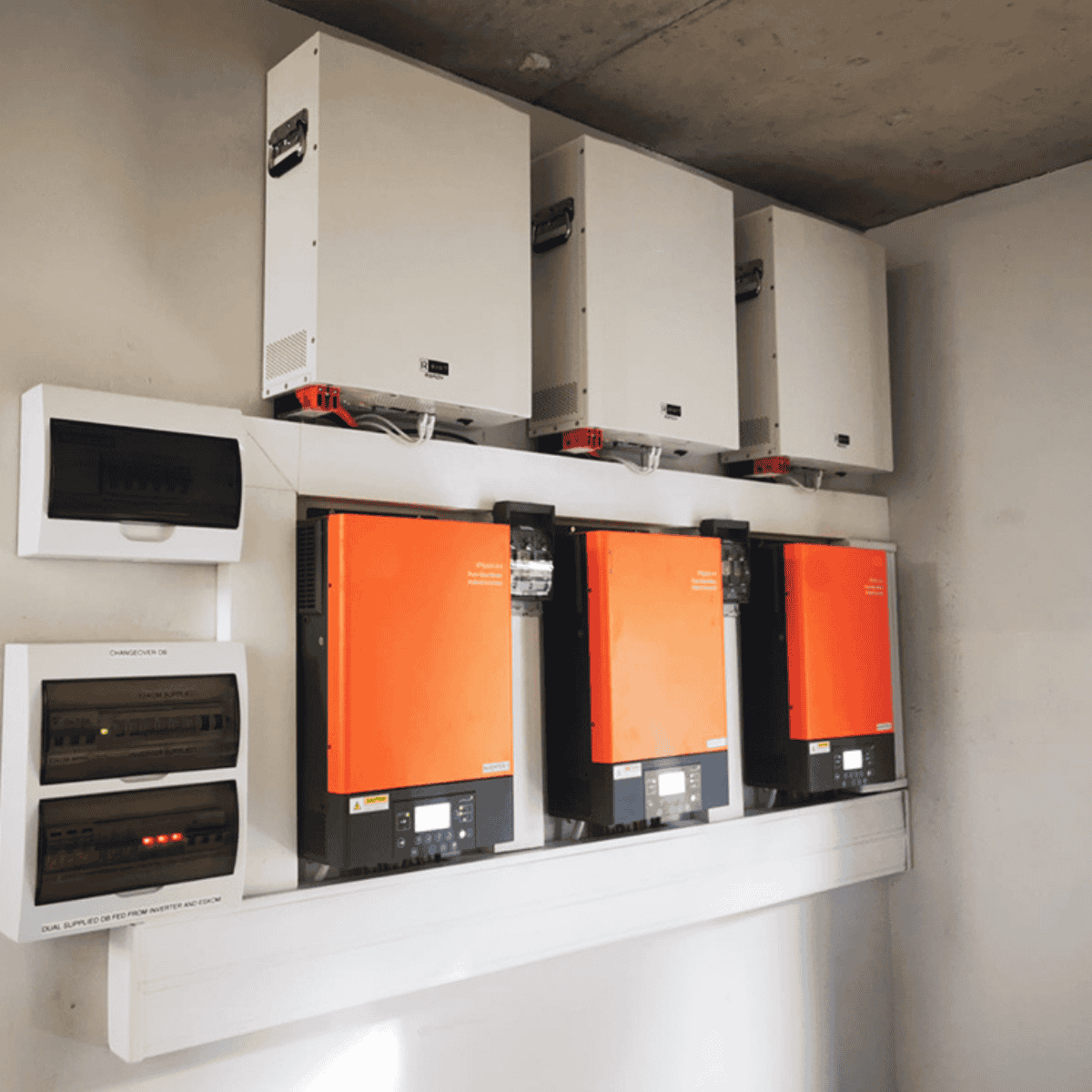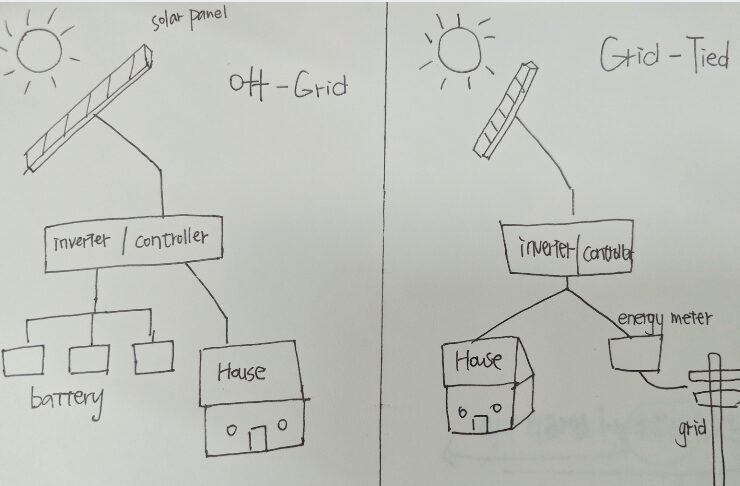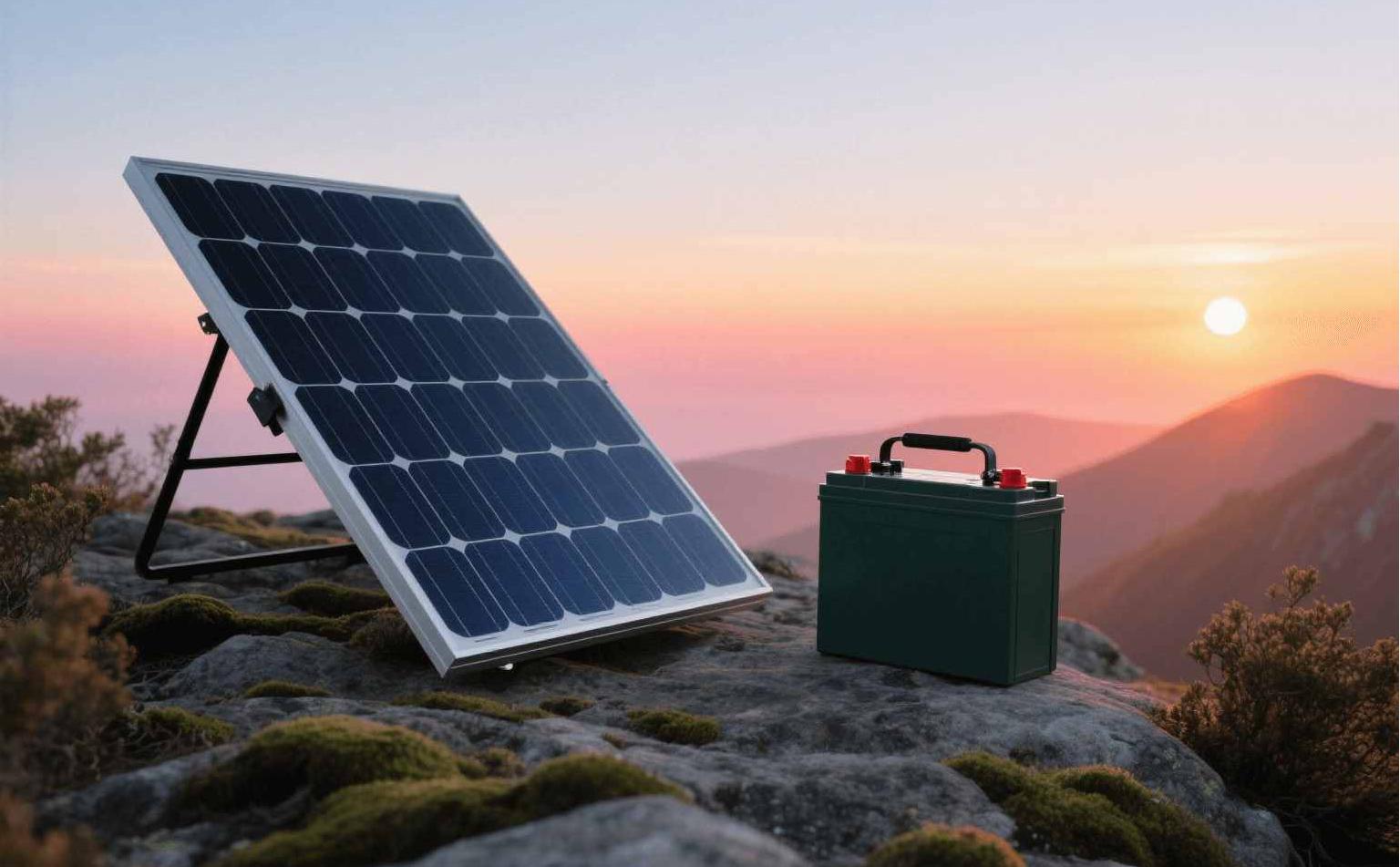
Home energy systems consist of batteries and photovoltaic systems. Batteries allow you to store excess electricity while combined with solar energy generated by photovoltaic systems, batteries enable you to store energy produced during the day for use at any time. These systems reduce residential dependence on the power grid and help homeowners reduce the environmental impact of their energy use and their electricity bills. Since solar energy systems offer so many benefits, how do you choose one? Which elements will impact your decision? Let's explore the details that could make or break this investment.
Before making a final decision, we should know what is home energy storage?
Simply speaking, home energy storage systems work by capturing excess electricity from renewable sources like solar panels and storing it for later use. It can also refer to a stand-alone home battery system that is charged directly from the grid and used to provide backup power or capture cheaper electricity. The different between them is off grid vs on grid.
Unlike traditional generators, which require fuel and produce emissions, home batteries offer a cleaner, more efficient backup power solution.
Related Article: how-solar-batteries-can-lower-your-electricity-bills
When considering energy management for your residence, understanding how a home energy storage system operates is essential.
The process begins like: A home energy storage battery captures electricity (DC current) from sources like solar panels, which is then converted to AC by an inverter for household use. This stored energy can later be used when needed, providing you with control over your consumption. And then, battery Management System (BMS) monitors and optimizes performance, ensuring efficient energy utilization.
The excess energy generated is then stored in the system battery. The monitoring system continuously tracks energy and usage patterns, enabling homeowners to optimize energy utilization. It can seamlessly switch between stored energy and grid power to meet the needs of homeowners in different modes.
Related article: home-energy-storage-systems-faq
What advantages do home batteries offer over traditional generators in energy storage? Here are four key benefits:
Energy storage systems for residential use encompass various types designed to meet different needs and preferences. Primarily, home energy storage systems are used for capturing excess energy from renewable sources, like solar panels, and storing it for later use.
In home energy storage system, lithium-ion batteries are the most popular choice among others due to their efficiency and longevity. You can also find lead-acid and saltwater batteries, each offering unique benefits and limitations. These systems enable you to power essential appliances during outages or peak demand times, optimizing your energy consumption.

Home battery storage systems offer numerous advantages that enhance energy independence and reduce overall costs for homeowners.
Here are four key benefits:
Home energy storage battery systems offer many benefits, but they are not suitable for all households. Ask yourself the following questions to determine whether investing in a system is worthwhile:

Are power outages frequent in your area? If you live in an area that frequently experiences power outages due to various issues, such as power repairs or natural disasters, or in an area where it takes a long time to restore power after an outage, choosing an energy storage system may be a wise choice.
If always struggle with poor utility electricity reliability, home energy storage battery could be a available investment for you.
If you're subject to time-of-use (TOU) rates from your utility company, suggesting to consider a battery for saving your electricity bills. TOU pricing means your electricity costs vary depending on the time of day, often spiking during peak demand hours.
By investing in a home energy storage system, you can store energy generated during off-peak times when rates are lower and use it during expensive peak times, effectively avoiding high charges.
Additionally, if your utility implements demand charges, energy storage can reduce your peak consumption, further decreasing your bills.
Many states and municipalities offer incentives such as rebates or tax credits for installing energy storage solutions.
For instance, some programs provide upfront cash rebates based on the system's capacity. Participation in initiatives like Bring Your Own Battery (BYOB) can yield additional financial benefits.
Additionally, the federal investment tax credit (ITC) currently allows you to deduct a considerable percentage of the installation cost from your federal taxes. By researching these programs, you can considerably reduce your upfront investment and increase your control over energy costs.
Pay attention! Due to differences in local policies, all matters should be governed by the policies and requirements of the place of residence.
When evaluating the potential savings from a home energy storage system, it's important to ponder how much electricity you can offset against your utility bills. Understanding this can empower you to take control of your energy costs.
Here are key factors to keep in mind:
Home energy storage systems greatly contribute to environmental sustainability by enabling the efficient use of renewable energy sources like: solar or wind power generation. Moreover, by storing excess energy generated during peak production times, you can reduce reliance on fossil fuels and lower your carbon footprint. These systems also help stabilize the grid and decrease greenhouse gas emissions.
There are some evidents support:
In Germany, households with solar + storage systems have been shown to reduce their carbon footprint by up to 80% compared to grid-only users, thanks to self-consumption of solar power.
In Australia (CSIRO reports): With high solar adoption, adding storage helps avoid thousands of GWh of fossil-fuel generation yearly, cutting millions of tons of CO₂.
Investing in a home energy storage system empowers you to make a positive environmental impact while enjoying enhanced energy independence.
Honestly speaking, there is no specific standard size for energy storage battery systems because each household has different electricity needs. The size of the battery depends on the number of electrical appliances, the number of people living in the household, and the power and wattage of the appliances.
Determining the appropriate size of a home energy storage system involves evaluating your household's energy needs, daily consumption patterns, and available renewable energy sources.
To make an informed decision, consider the following factors:
The answer is yes. But whether a home energy storage system can supply power to everything in your house hinges on understanding your specific energy demands and the system's capacity. Here’s a breakdown of typical appliance power requirements:
| Appliance | Power (W) | Daily Usage (Hours) | Daily Consumption (Wh) | Total kWh Needed |
| Refrigerator | 150 | 24 | 3600 | 3.6 |
| Lights (10 bulbs) | 100 | 5 | 500 | 0.5 |
| Heating/Cooling System | 3000 | 5 | 15000 | 15 |
| TV | 200 | 4 | 800 | 0.8 |
| Electric Vehicle Charger | 7200 | 1 | 7200 | 7.2 |
Furthermore, common energy storage systems currently on the market provide power to essential home systems, such as high-power appliances and emergency sockets. If you need to power your entire household, you will require additional equipment and batteries, which will significantly increase the initial investment cost.
Understanding these needs will help you determine if a home energy storage system is capable of supporting your desired lifestyle.
How much will a household energy storage system cost, and is it the right investment for you? The author think it is a vital question for all readers. The cost of a home energy storage system varies depending on several factors, including battery capacity, household electricity consumption, local incentives, and electricity pricing. If you purchase one online, you will also need to consider shipping costs and customs duties. In any case, be prepared to pay a hefty price if you decide to purchase one.
Here are four key cost factors to take into account:
According to data by EnergySage, as of August 2025, the average storage system cost in New York is $1463/kWh. For a storage system size of 13 kWh, an average storage installation in New York ranges in cost from $16,169 to $21,875, with the average gross price for storage in New York coming in at $19,022.
The author would like to remind everyone that a home energy storage system is a long-term investment that should be considered when budgeting. Similar to solar panels, home energy storage systems typically recoup their cost over time through savings on electricity bills.
However, the timeframe varies depending on the situation and is worth evaluating carefully.
Reflecting on the long-term benefits and potential cost savings, investing in a home battery storage system can be a smart choice for many homeowners. As we mentioned before, it could save your electicity costs, reduce carbon footprint, enhance control over energy consumption, provide backup power, etc.
From the perspective of the new energy industry, the growth of home energy storage systems has paved the way for innovation and market expansion.
As these systems gain mainstream acceptance, the manufacturing, installation, and maintenance service markets have developed alongside them.
Moreover, advancing battery technology and intelligent energy management systems are continuously pushing boundaries, driving research and development, and creating a competitive environment for companies investing in renewable energy solutions.
As governments and businesses increasingly embrace sustainability principles, home energy storage systems have become indispensable for achieving broader environmental goals. This makes the field a cornerstone of the growing green economy.
Here are simple installation steps for your reference.
When planning the installation of a home energy storage system, it’s essential to start with a professional assessment of your energy needs and existing electrical setup. This assessment helps determine the appropriate battery capacity and configuration for your household.
Next, the selected system is installed by connecting the batteries and inverters to your home’s electrical panel, ensuring compatibility with any solar panels you may have. If is stand-alone home battery system, can be igore this step. Then wiring integration follows, and the entire system undergoes rigorous testing to meet safety standards and local regulations.
Finally, you’ll receive a user interface that allows you to monitor energy production, consumption, and storage, giving you greater control over your energy management and efficiency.
To sum up, a home energy storage system can greatly enhance your energy independence and savings. With homeowners saving an average of 30% on their electricity bills when utilizing stored energy during peak hours, it’s worth considering whether this investment aligns with your needs. By evaluating local utility reliability and potential financial incentives, you can make an informed decision. Ultimately, reviewing your specific circumstances will help determine if a home energy storage system is the right choice for you.


"We strive to deliver real value for our customers through distinctive design, superb quality and excellent customer service at prices that reflect the real worth of our products."
---Emmy Zheng, Author




[…] it true that off-grid solar systems can offer complete energy independence? While many believe this to be the case, the reality is more nuanced. Understanding the intricacies […]